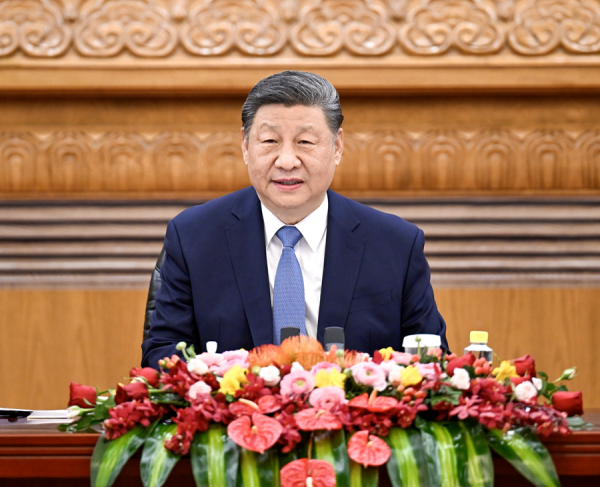As fresh U.S. tariffs send shockwaves through global and Asian markets, China’s central bank has remained to keep its currency stabile over a sharp devaluation — for now. On Monday, the People’s Bank of China (PBOC) set the yuan’s daily midpoint at 7.1980 per U.S. dollar, a four-month low, but crucially still shy of the symbolic 7.2 threshold.
Trump’s announcement last week of a 34% tariff on Chinese imports triggered immediate volatility, with the offshore yuan tumbling to 7.349 before partially rebounding. But the PBOC’s restrained response indicates a strategic calculation: signal strength, not surrender.
“Emerging market currencies are under heavy pressure from U.S. tariff shocks, and today’s fixing reflects that,” said Ding Shuang, chief Greater China economist at Standard Chartered. “But holding the line at 7.2 shows the central bank is prioritising yuan stability over short-term retaliation.”
The yuan’s performance is now being closely watched as both an economic indicator and a political message. Analysts see the currency as a key bargaining chip in Beijing’s broader trade strategy. A deeper devaluation could cushion exporters hit by tariffs — but it also risks triggering capital outflows, investor panic, and renewed accusations of currency manipulation from Washington.
“There’s a gap between the offshore rate and the official fixing,” said Chen Zhiwu, chair professor of finance at the University of Hong Kong. “But the controlled depreciation suggests the PBOC wants to keep the yuan as a steady anchor in turbulent waters.”
China responded to Trump’s latest tariffs with an equivalent 34% levy on U.S. goods and new restrictions on select American firms. Yet despite rising tension, the PBOC has repeatedly stressed that preventing “exchange rate overshooting” remains a top priority.
“If talks resume, a stable yuan gives China leverage,” Chen added. “And if progress is made, a slight appreciation could be used as a goodwill gesture.”
For now, the message from Beijing is clear: even amid trade war tremors, China is keeping the yuan firmly under control — though how long that restraint holds may depend on Washington’s next move.


